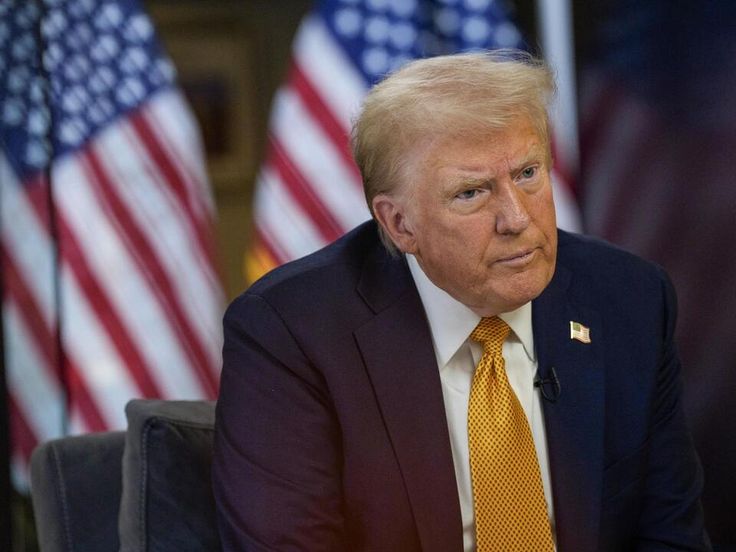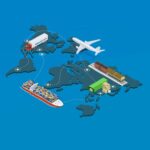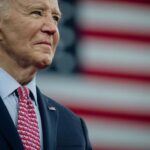Top Political Leaders of 2025: Influencing Global Politics and Change
As the world enters 2025, political leaders around the globe continue to shape national and international policies, confront pressing challenges, and navigate the ever-changing dynamics of geopolitics, economic shifts, and social movements. These leaders, from presidents and prime ministers to monarchs and key figures, wield significant influence over their nations and the world. Here are some of the top political leaders of 2025 who are leading their countries through times of transformation, crisis, and opportunity.
1. Joe Biden – President of the United States: Political Leaders
As the president of the United States, Joe Biden continues to play a central role in global affairs. Elected in 2020, Biden’s leadership has been focused on rebuilding the U.S. after the tumultuous presidency of Donald Trump. His priorities include climate change, economic recovery, global diplomacy, and promoting democracy both at home and abroad. By 2025, Biden’s administration is navigating challenges such as geopolitical tensions with China, the aftermath of Russia’s invasion of Ukraine, and domestic political divisions.
Biden’s foreign policy includes reaffirming the U.S.’s role in international institutions like the United Nations and NATO, as well as promoting democratic values globally. His domestic policies focus on reducing inequality, advancing healthcare reform, and fighting climate change through ambitious legislation and investment in renewable energy. In the face of a possible re-election bid in 2024, Biden’s leadership in global affairs and U.S. domestic policies remains crucial to the direction of American influence in 2025.
2. Xi Jinping – President of China: Political Leaders
Xi Jinping, as the president of China, is one of the most powerful figures on the global stage in 2025. Xi’s leadership has been characterized by his pursuit of Chinese nationalism, a firm stance on territorial integrity, and the expansion of China’s influence globally. Under his rule, China has increasingly asserted its position in the Asia-Pacific region, particularly regarding Taiwan and the South China Sea.
In 2025, Xi continues to push forward with his vision for a modern socialist China and aims to solidify China’s global dominance in technology, economics, and military power. Xi’s Belt and Road Initiative, which seeks to expand China’s economic influence through infrastructure projects in Asia, Africa, and Europe, is a key component of his foreign policy. Domestically, Xi’s administration faces challenges related to economic slowdown, demographic shifts, and civil liberties concerns as he seeks to maintain control over the Communist Party.
3. Narendra Modi – Prime Minister of India: Political Leaders
Narendra Modi, the Prime Minister of India, remains a prominent figure in 2025, leading one of the world’s largest democracies. Modi has focused on policies aimed at transforming India into a global economic power, emphasizing digital innovation, infrastructure development, and economic reforms. His leadership has also seen a shift toward Hindutva (Hindu nationalism), which has garnered both support and criticism within the country and internationally.
In 2025, India is playing an increasingly important role on the global stage, particularly with its growing economic influence, as well as its strategic partnerships with the United States and other countries. Modi’s foreign policy focuses on regional leadership in South Asia and a growing presence in global forums like the United Nations and the G20. His handling of border tensions with China and the ongoing conflict in Kashmir are critical issues in his leadership.
4. Ursula von der Leyen – President of the European Commission: Political Leaders
As the President of the European Commission, Ursula von der Leyen holds one of the most influential positions in the European Union (EU). In 2025, her leadership is central to shaping the EU’s response to economic challenges, climate change, and the ongoing consequences of Brexit. Von der Leyen has been a proponent of stronger European unity, economic integration, and advancing green policies, including the EU’s Green Deal, which aims to make Europe the first climate-neutral continent.
Under her leadership, the EU continues to push for stronger global regulations on digital trade, cybersecurity, and data privacy. Von der Leyen has also been instrumental in managing the EU’s response to the Russia-Ukraine conflict and the refugee crisis, navigating a complex relationship with both Russia and Turkey.
5. Volodymyr Zelenskyy – President of Ukraine: Political Leaders
Volodymyr Zelenskyy, the President of Ukraine, has become a globally recognized figure in 2025 due to his leadership during the Russia-Ukraine conflict. His defiant stance in the face of Russian aggression and his efforts to garner international support for Ukraine’s sovereignty have made him a symbol of resilience and determination.
As Ukraine continues to fight for its territorial integrity, Zelenskyy remains a key figure in global diplomacy, working with NATO allies and the European Union to secure economic and military support for Ukraine. His leadership has also inspired other democratic movements and political leaders globally who are resisting authoritarianism.
6. Emmanuel Macron – President of France: Political Leaders
As the president of France, Emmanuel Macron remains one of the most influential political leaders in Europe. His pro-European Union stance, combined with his focus on economic reform, digital innovation, and climate action, has kept France at the forefront of European and global politics. Macron has also been active in the European Security and Defense landscape, advocating for greater autonomy from the U.S. and strengthening Europe’s defense capabilities.
Macron’s leadership in 2025 continues to navigate the tensions between France’s relationship with the U.S., Russia, and China, as well as domestic challenges such as labor protests, yellow vest movements, and ongoing debates about immigration policy and national identity.
7. Rishi Sunak – Prime Minister of the United Kingdom: Political Leaders
Rishi Sunak, the Prime Minister of the United Kingdom, represents a new generation of leadership following Boris Johnson’s tenure. Sunak’s rise to power came during a challenging period for the UK, especially in the aftermath of Brexit and the economic fallout from the pandemic. In 2025, Sunak’s government is focused on stabilizing the economy, addressing cost-of-living crises, and balancing relationships with the EU, the United States, and emerging markets.
Sunak’s economic policies are shaped by the need to ensure post-Brexit growth and competitiveness while managing the impact of rising inflation and the energy crisis. His leadership is also critical as the UK navigates the broader geopolitical shifts between Europe, the U.S., and China.
8. Justin Trudeau – Prime Minister of Canada: Political Leaders
Justin Trudeau, the Prime Minister of Canada, remains an influential leader in 2025, known for his progressive stance on climate action, immigration, and multilateral diplomacy. Under his leadership, Canada has strengthened its position as a mediator in global conflicts, while also working to address economic inequality, indigenous rights, and climate change at home.
Trudeau has been pivotal in maintaining strong ties with the United States, the European Union, and the United Nations, particularly in the context of global trade policy and climate change initiatives. His progressive values have made Canada a leader in promoting diversity, gender equality, and human rights on the global stage.
9. Jacinda Ardern – Prime Minister of New Zealand: Political Leaders
Although Jacinda Ardern stepped down as Prime Minister of New Zealand in early 2023, her influence continues to be felt globally in 2025. Ardern is admired for her compassionate leadership during crises such as the Christchurch shooting and her effective handling of the COVID-19 pandemic. She remains an important figure in promoting social justice, climate action, and global cooperation.
In 2025, Ardern’s policies continue to serve as a model for progressive governance, balancing economic growth with environmental responsibility and human rights.
10. Kim Jong-un – Supreme Leader of North Korea: Political Leaders
Kim Jong-un, the Supreme Leader of North Korea, remains a key figure in East Asian geopolitics in 2025. While North Korea continues to face economic difficulties and international isolation, Kim’s leadership is marked by his pursuit of nuclear weapons and the desire to assert North Korea’s sovereignty on the global stage. In 2025, tensions with South Korea, the U.S., and Japan continue to shape regional security concerns, and Kim’s policy decisions are crucial to the stability of the Korean Peninsula.
Conclusion: Political Leadership in 2025; Political Leaders
The political leaders in 2025 are facing a dynamic and interconnected world of challenges, from the persistence of geopolitical rivalries to the urgency of climate change and economic inequality. Their leadership will be defined by how they navigate these issues, build international coalitions, and respond to the demands of their citizens. Whether advocating for global cooperation or national sovereignty, these leaders will play a crucial role in shaping the future of their countries and the world.










